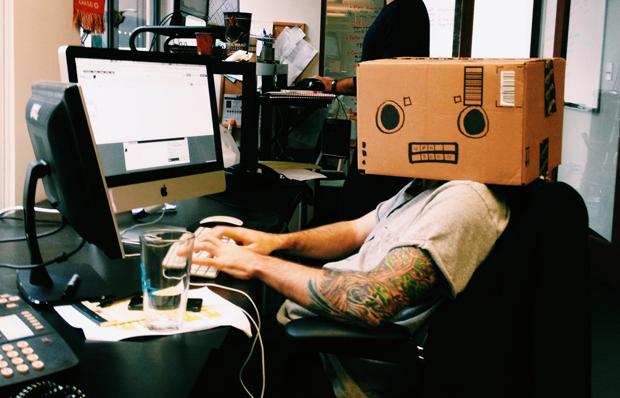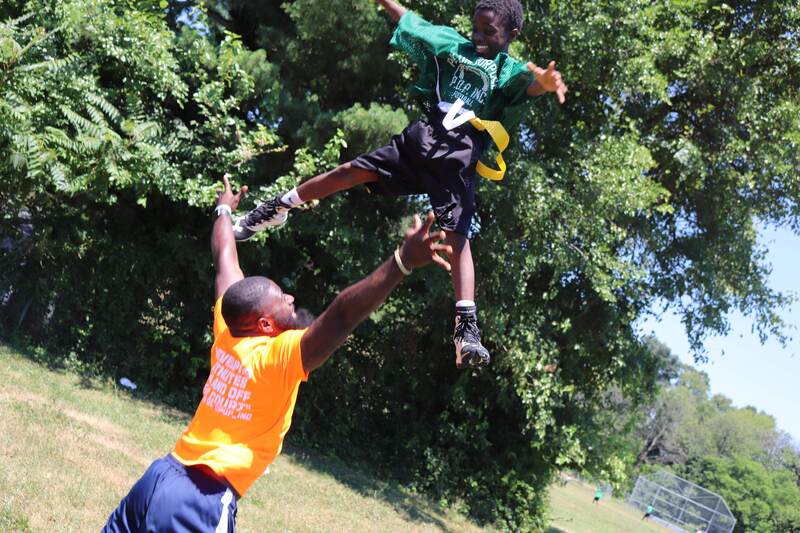
John Oliver has been a (somewhat) compelling individual when it comes to the news for a while now. He’s lost much of his charm for me throughout the years as I find his jokes do more to hurt his message than help and I also find the Daily Show style presentation outdated. Nevertheless there’s no denying he can be (at least at times) funny and insightful. Sometimes he even uses his platform on a given topic to give money tthat does good work or otherwise brings attention to folks who he thinks could use the attention (for better or worse).
This video on automation recorded in the first half of 2019 is another video I’ve had on my Watch Later list for a while now. I was never making it a priority to get around to since I always had more compelling articles to analyze, movies to watch, chapters of books to review, etc. But now that I’ve finally watched it I can tell you that my time away from the video didn’t end up mattering much.
The best part of this video is also its worst: It’s a very 101 video on automation; what it is and why it both is and isn’t as scary as pundits try to make it. I already knew a lot of this information and in fact seeing David Autor I was reminded of John Danaher’s excellent articles addressing Autor on automation, all three of which you can find here.
That being said, given I’ve restarted the site and I don’t have any posts (technically) on automation, this may make a solid general introduction for folks reading this site!
Oliver starts the program making the point that kids are often asked about what kind of job they want when they grow up. This is part of our culture’s obsession with work and having it be crucial to our sense of identity. If you don’t know what you want to be adults might look at you disapprovingly or perhaps remind you that you’re still young (so why ask?) and you may figure it out later! If both of these responses seem unhelpful to you that’s probably because the whole conversation is unhelpful for all involved. You are asking a child what they want to do with their lives. By some estimates, that part of our brains aren’t fully developed till our mid-twenties!
This doesn’t mean we can’t ask kids tough questions or that kids cannot take responsibility for their actions, but that we need to give kids more autonomy to figure that out for themselves.
At any rate, Oliver notes that many folks believe that automation is a “huge part” of job loss in the US especially. But the reality is much more complicated than that with only some jobs actually being taken away from workers. Oliver uses an example that I believe Autor uses as well, the rise of the ATM and the feared decline of the bank teller. Back in the 80s when ATMs were becoming popular, many bank tellers feared the loss of their jobs. But instead of losing their jobs, their jobs simply changed to involve other operations within a bank.
In addition, even when it is true that jobs are being lost, Oliver smartly points out that this can at times be a good thing. Don’t we want less loggers falling out of trees and hurting themselves? Wouldn’t we want industries where workplace injuries are currently rampant to trend downwards so more people wouldn’t get hurt? It’s an intuitive reason to automate for sure.
But automation can also be done for more capitalistic reasons such as profits and the rate of production within a given company. There’s a trend amongst CEOs praising the rise of automation because it’ll allow them to fire more workers and increase the pay for those left over or, better yet, keep it the same and increase profits and production for the whole company.
As Oliver notes, who controls the rise of automation is also very important and right now we have some no-so-intelligent leadership in the White House. But even if we did we still live under capitalism, a point Oliver, of course, doesn’t mention given his liberal tendencies. This economic reality means that automation is ultimately being done to better serve capital, not labor!
There’s also a study that was thrown around a few years ago about 50% or more jobs being automated, but as usual it was a study taken out of context by news sources. What the study was actually documenting was whether jobs fell into the high risk category, which is different from an all-but-guaranteed-automation. And again, even when automation does happen there is the complimentary effect which Autor and Danaher have discussed in the links above, check it out.
On top of that there are jobs that may exist in 50 years or so that we could never imagine. Oliver uses the example of how agriculture has shrunk to a shadow of its former selves. America used to be dominated by independent and small-scale farmers but overtime due to mechanical automation and improvements, the huge size of agriculture became less and less necessary.
Many feared what would happen to the farmers and their equipment but many just found jobs in the city. And now we have many jobs that those people could never have imagined such as coders, Youtubers, Uber drivers and much more. That said, the transition is not always easy from one industry to another. Oliver points out that older truckers are not going to suddenly start coding, despite the threat of losing their jobs thanks to machine learning and self-driving cars.
So what do we do about them?
Oliver mentions tax increases, federal funding for retaining for those who lose their jobs and teaching the young a different strategy. Instead of, “What do you want to be when you grow up?” You can instead ask them, “What five things do you want to do when you grow up?” which seems much more reasonable given many people don’t have careers in 2020, just a series of jobs.
Whatever the end result of automation Oliver is surely right that it isn’t going to stop anytime soon and that we all need to be better prepared for it and educated about it. Maybe in the process of bettering our strategies surrounding automation, we can also challenge capitalism?
If you enjoy my articles, consider donating to my Patreon!

